Services
Grading
BCRC is responsible for maintaining 161 miles of unpaved roads. Most unpaved road maintenance occurs during the summer and fall. Maintenance efforts last longest when conditions are dry and warm. Calcium Chloride is applied during dry periods, as needed, to control dust. During the winter months, when roads are frozen, they are hard and cannot be graded. In the spring, roads thaw and become saturated with moisture. Aggressive or too much grading, during the spring thawing period make muddy conditions worse.

Potholes
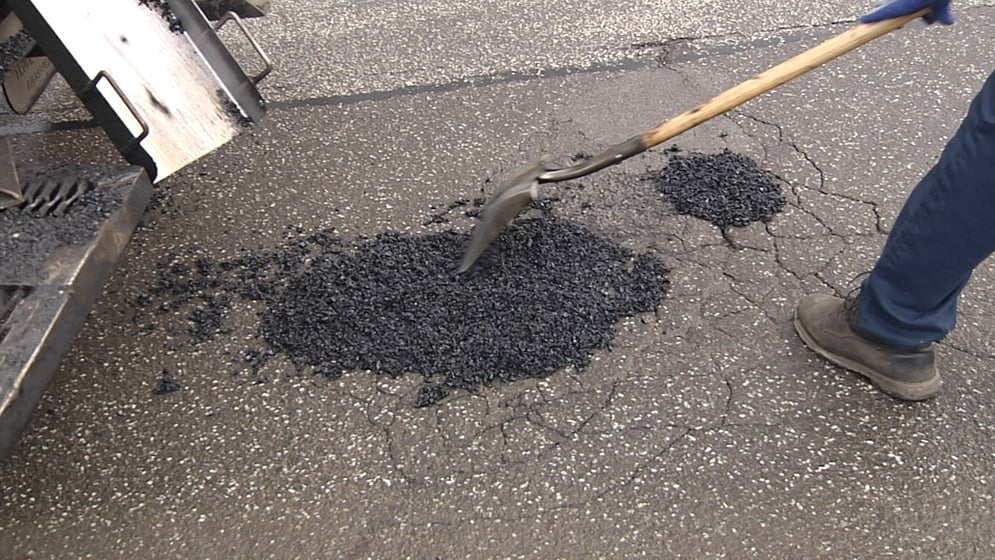
A pothole is typically fixed by filling it with hot or cold asphalt product, one designed to be applied to water-filled pothole. If you are reporting a pothole that you view as an emergency or potentially harmful, please contact BCRC immediately at (989)-686-4610. For more about potholes, visit our FAQ.
Snow and Ice Removal
BCRC clears over 1,036 miles of county roads based on a priority system listed below.
- Michigan Department of Transportation (MDOT) trunklines/highways
- BCRC Primary roads
- Township Local roads
- Subdivisions.
Long or back-to-back storms may delay BCRC’s response time for clearing township Local and subdivision roadways. Since the BCRC’s priority is the MDOT trunklines and Primary road system, these types of storms require the BCRC to “reset”, continuing to plow and clear MDOT and Primary roads until the storm or back-to-back storms subside.
It is the responsibility of the homeowners and business owners to clear snow from their sidewalks and end of their driveways after a snow plow passes. To learn more about how to avoid the clearing the end of your driveway after a snow plow’s second pass, please see…. visit our FAQ.
Salt is ONLY applied to MDOT state trunkline and BCRC Primary roads. Local Roads and subdivisions typically do not receive salt application during or after snow or ice events.
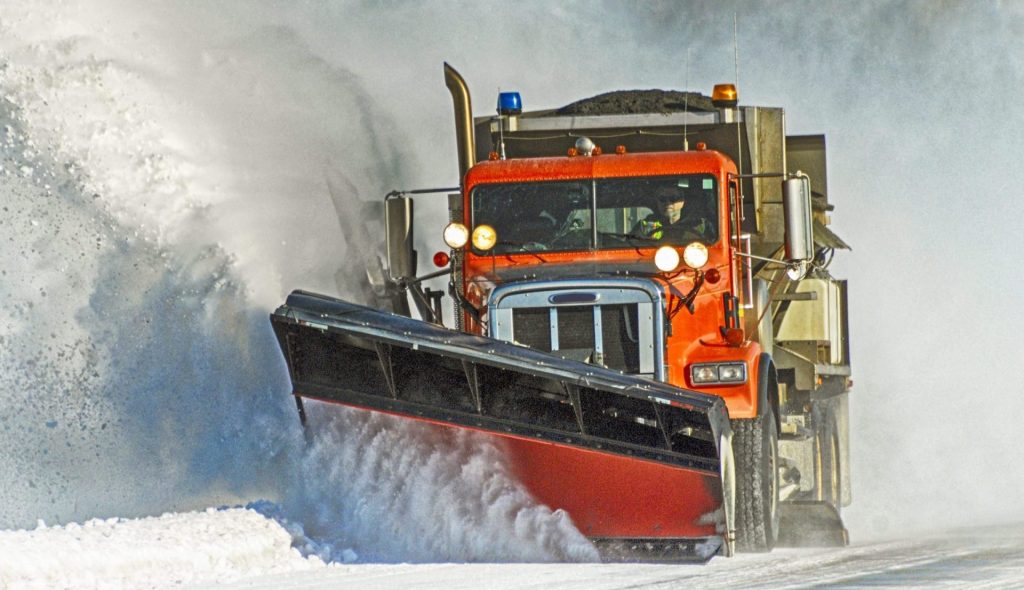
Animal in the Roadway/Dead Animals
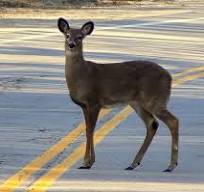
BCRC only removes large animals, such as deer, from the roadway when the remains pose a safety concern. Crews will pull animal remains far enough off the road as not to interfere with travel. BCRC does not have the resources to completely remove and dispose of animal remains located in the road right-of-way.
Roadside Drainage Issues
When deemed necessary, the BCRC will investigate and correct roadside drainage issues located within the road right-of-way, typically 33-feet on either side of the road centerline (yellow stripe).
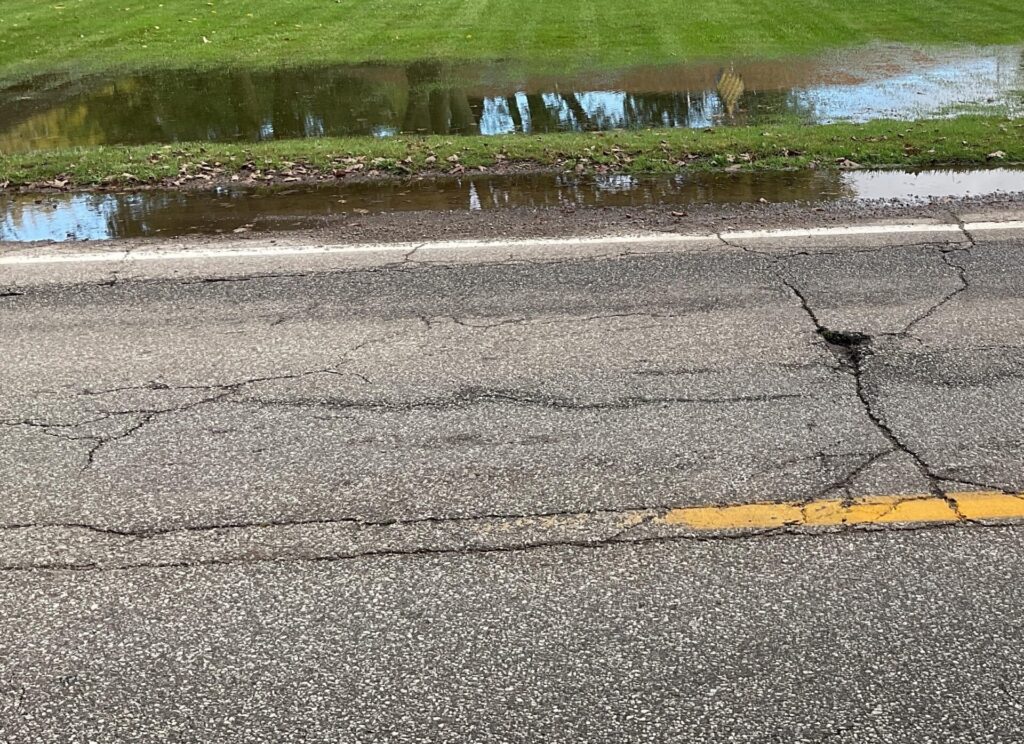
Standing Water vs. Flooding
Standing water after a large rain or snow melt event does not necessarily constitute flooding. Many times, water will cover a roadway and recede over a relatively short span of time (a few hours), as the storm sewer or roadside ditch system is able to “catch up”. The BCRC defines flooding as the presence of water covering a roadway, impeding vehicular travel, over a long period of time (24 hours or more). Further, the BCRC defines flooding when storm or snow melt water causes physical damage to homes, businesses, garages or other facilities that are typically covered by an insurance policy. Flooding IS NOT standing water on residential or commercial lawn areas, even though the water may be present for 24 hours or more.
MOST IMPORTANTLY, the BCRC, nor any other Road Commission across the State of Michigan, IS NOT responsible for draining or providing drainage for private property. The BCRC and other road commission allow private property owners to discharge sump pumps, parking lots, farm fields and storm runoff from lawn or landscape areas into roadside ditches or storm sewer BY PERMIT ONLY. To discharge storm water into a roadside ditch or storm sewer, the property owner MUST apply for and receive an approved permit to do so. If a permit is not secured, the BCRC has the right, per Michigan law, to have the connection updated to current BCRC standards or have it removed, at the owner’s expense.
The cause and extent of standing water/flooding will determine BCRC’s response. Sometimes crews can remove an obstruction in the roadside ditch or storm sewer, allowing storm water to recede. Other times, the BCRC must close the road, place warning signs and wait for the water over the road to naturally recede. If there is water over the road in excess of a few hours, please call the BCRC immediately at (989)-686-4610 Report an Issue.
Litter Trash
Unfortunately, BCRC doesn’t have the resources to pick up litter or trash located off the road but still in the road right-of-way. If you are reporting litter or trash in a roadway that poses an immediate danger, please call us immediately at (989)-686-4610. If the litter or trash is located in a roadside ditch, especially tires, old appliances, furniture or other large items or “pile of items”, please contact us immediately at (989)-686-4610 or Report an Issue.
Guardrail Repair
When guardrail deteriorates or is struck by a vehicle and damaged, the BCRC will repair or replace the guardrail.
Pavement Markings / Lane Stripping
The BCRC is responsible for maintaining approximately 400 miles of pavement markings, road legends and symbols. When pavement markings wear down, the BCRC schedules repainting pavement striping and reapplication of pavement marking legend. Pavement markings are only applied to the BCRC’s Primary road system. There are exceptions, as townships can request and pay for roadway pavement marking on their local roads.
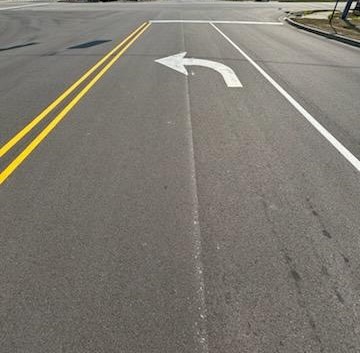
Street Sweeping
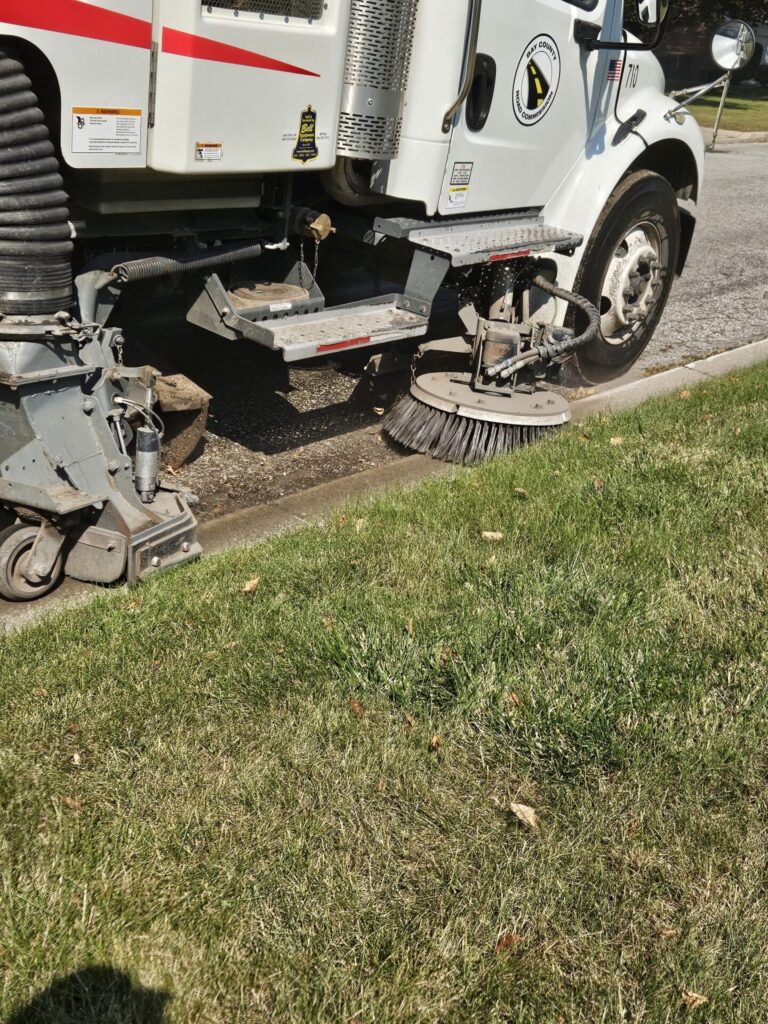
BCRC is contracted by MDOT to perform street sweeping of curb and gutter on MDOT state trunkline roadways twice a year. After the MDOT roadways, curb and gutter roadways within Bay County are then prioritized by the Michigan Department of Environment, Great Lakes and Energy (EGLE) though a mandated permit. Once the BCRC completes the MDOT contracted and EGLE mandated roads, the BCRC prioritizes the remaining curb and gutter roadways throughout the county. Typically, there are two sweeping periods during the year, one in late-spring and the second in early-fall. Unfortunately, due to the sheer number of curb and gutter miles and available workforce, many roadways may not be swept every year.